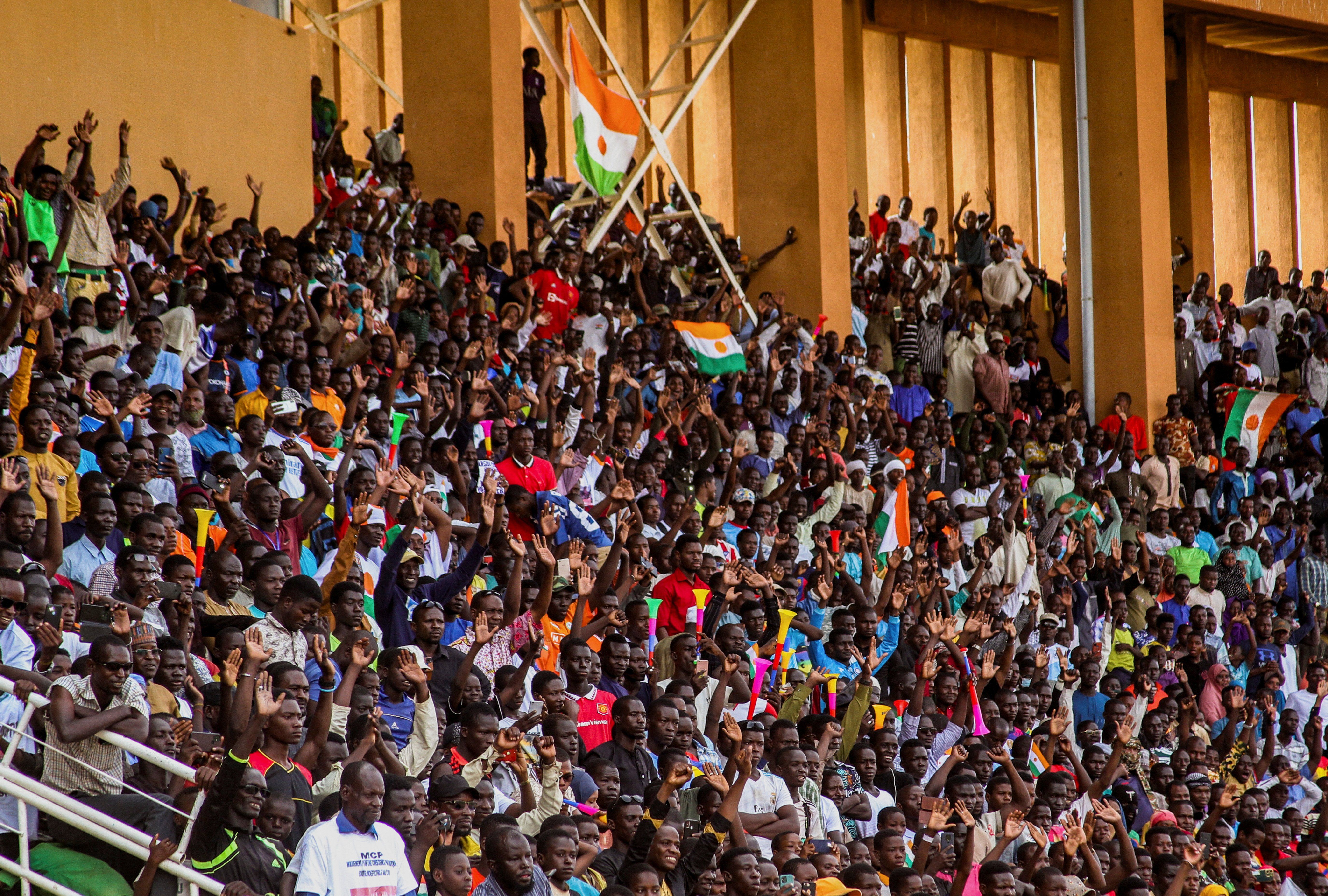The Economic Community of West African States threatened to intervene militarily if Niger’s coup leaders didn’t restore the country’s democratically elected leader, President Mohamed Bazoum, by Sunday. That deadline has now passed without any sign of a military response.
Meanwhile, thousands of supporters of the junta, which now calls itself the National Council for the Safeguard of the Homeland, filled a 30,000-seat stadium in the capital Niamey. They cheered and carried Russian flags and portraits of junta militants, including self-appointed leader General Abdourahmane Tchiani.
Neighboring Burkina Faso, Guinea, and Mali – notably suspended from ECOWAS owing to recent coups in their countries – side with the new regime, and Burkina Faso and Mali have threatened to respond if Niger is attacked by the bloc.
ECOWAS members, led by Nigeria, support the return of Bazoum but appear unwilling to use military might. On Saturday, the Nigerian Senate rejected a request by President Bola Tinubu to send troops to Niger and called instead for a political solution. Some are also concerned that military intervention would pull the Wagner Group – already entrenched in Mali and Burkina Faso – into the fray. Non-ECOWAS nations Chad and Algeria also oppose military intervention.
For his part, Bazoum has not given up. In an op-ed for the Washington Post, he asked for help from the international community. France has pledged its support for ECOWAS military intervention, and the US has agreed to keep up diplomatic pressure, but we’ll be watching to see how far ECOWAS is willing to go to deliver on its threat.More For You
In his latest Quick Take, Ian Bremmer explains a major shift in the Ukraine war: Europe, not the United States, is now driving the strategy.
Most Popular
In 2025, GZERO’s Global Stage coverage highlighted a recurring theme: artificial intelligence is transforming every corner of the globe.
It's one of the few sources Americans across the political spectrum still rely on.
At the start of the 21st century, Destiny’s Child was atop the US charts, “Google” was a little known search website with a weird name, and two things happened that would shape the world we live in today.
